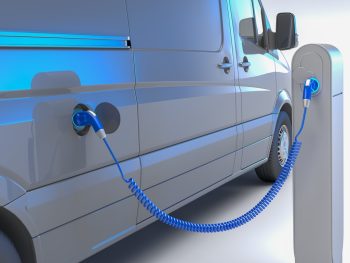Venson Automotive Solutions has added its weight to calls for urgent revisions to electric van targets in the ZEV mandate.
 The mandate, which became law early 2024, levies incremental annual targets on vehicle makers for a percentage of new cars and vans to be zero-emission, backed by a system of fines and penalties for non-compliance.
The mandate, which became law early 2024, levies incremental annual targets on vehicle makers for a percentage of new cars and vans to be zero-emission, backed by a system of fines and penalties for non-compliance.
The plan is for 22% of new cars and 10% of new vans sold in Great Britain to be zero emission this year, rising to 80% and 70% respectively by 2030 and 100% by 2035.
The BVRLA has warned that a leap is needed to move the market from 5.9% of new electric van sales in 2023, and 5.3% for the first nine months of 2024, to where it needs to be.
And the SMMT and 12 major vehicle manufacturers wrote to the Chancellor earlier this month, calling for measures to help speed up the pace of the consumer and business EV transition. These include an extension on the Plug-in Van Grant past 2025, equalised VAT on public charging to match the 5% home charging rate and mandated infrastructure targets to support those who cannot charge at home and with provisions for the additional size and power requirements of zero-emission vans.
Venson has now warned that the targets for electric vans must be revised to reflect the pace at which fleets can adapt.
As Labour prepares for its first Autumn budget, the fleet management specialist is urging the Government to take decisive action against “unachievable targets and restrictive regulations” to relieve the burden for the commercial fleet sector.
“Although the ZEV mandate states lower quotas for vans than for cars, it doesn’t take into account the pace at which electric vans can be taken into fleets,” explained Simon Staton, client management director at Venson.
“The challenge for fleet operators is that the eLCVs currently available do not always meet business requirements. For example, the payload, mileage and charging infrastructure mean that electric vans can’t always meet the operational requirements of a business. Forcing a premature electric van transition would require a lot of planning and negotiation within a business, and sometimes unions, to change operational ways of working.”
Venson has also called for an update on government plans to remove some long-standing barriers to fleet usage of 4.25-tonne electric vans, supporting accelerated adoption by operators.
While such vehicles already benefit from a gross vehicle weight derogation that enables individuals with a Category B (passenger car) licence to drive them, heavier electric vans are still subject to multiple rules and regulations originally intended for the heavy goods vehicle sector. These rules limit speed and driving hours, severely impacting efficiency.
Simon Staton concluded: “With the right vehicles, right pricing and a clear, workable strategy from the Government that addresses the regulatory aspects of managing a commercial fleet, the UK e-van market could improve in the medium to long term. Overall, right now, however there’s no hiding the fact that the picture is far from rosy.”

